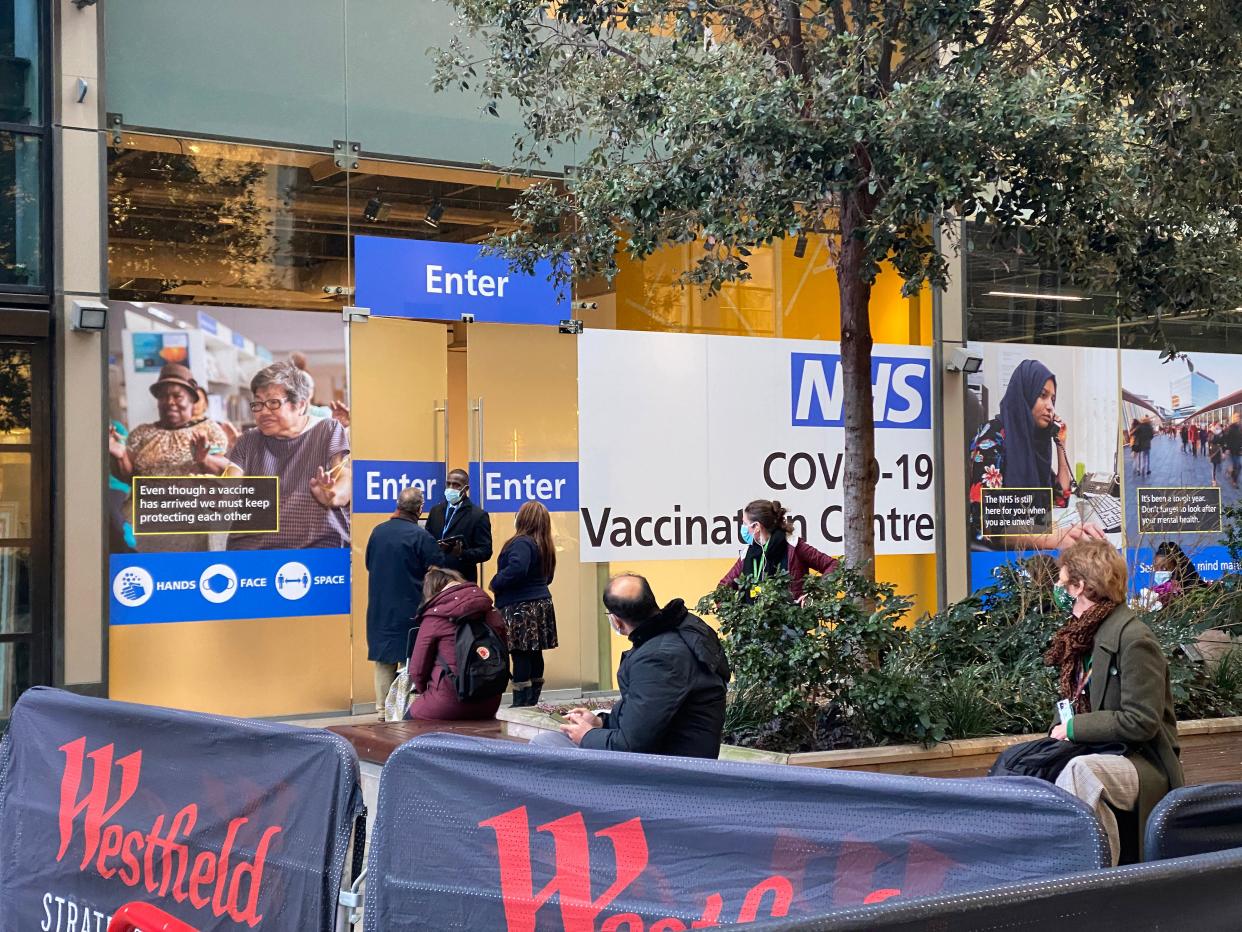London vaccine total is almost half that of the Midlands

London is continuing to fall behind in the national vaccine rollout
(Lucy Young)London has carried out almost half the number of coronavirus vaccinations recorded in the Midlands, the latest NHS England figures show.
The capital is continuing to lag behind in the country’s mass vaccination efforts, with just 476,168 jabs administered to Londoners between December 8 and January 19.
This compares to the 830,828 deployed in the Midlands.
It comes as an investigation carried out by the Standard revealed that some Londoners who are not part of the Government’s priority groups have found ways to skip the queue.
London’s latest count represents less than 10 per cent of the national total, which has now reached 4,419,704.
The figures, released on Wednesday, include both first and second doses of the available Covid-19 vaccines.
In the capital, 423,733 first doses and 52,435 second doses have been deployed.
This compares to 764,557 first doses and 66,271 second doses given to people in the Midlands.
However, it is worth noting that the capital has a proportionately smaller elderly population, and the over-80s remain first in line for the jab.
Figures for England’s other regions are as follows:
North East and Yorkshire – 670,778 first doses and 71,378 second doses, making 742,156 in total;
North West – 553,830 first doses and 61,980 second doses, making 615,810 in total;
South East – 647,182 first doses and 75,366 second doses, making 722,548 in total;
South West – 457,849 first doses and 52,981 second doses, making 510,830 in total;
East of England – 441,299 first doses and 53,304 second doses, making 494,603 in total.
The data comes as Boris Johnson faces mounting pressure to bump teachers, police officers and other key workers up the vaccine priority list.
Speaking at Prime Minister’s Questions, Conservative MP Jason McCartney (Colne Valley) asked: “Does the Prime Minister agree that once we’ve vaccinated the most vulnerable, the elderly and our wonderful health and social care workers, we should then look at prioritising vaccinating police officers, emergency service workers, carers, teachers, nursery staff and all those whose essential daily work brings them into contact with other people?”
Mr Johnson replied: “We must rely on what the JCVI (Joint Committee on Vaccination and Immunisation) has to say, the priorities that the experts have decided, but of course we want to see those groups that he mentions vaccinated as soon as possible.
“I am very pleased that in spite of all the difficulties, we gave 1.5 million people their first dose – up half-a-million on the week before.”
The Government has pledged that all those in the top priority groups, including the over-70s and frontline health and social care workers, will be able to receive their first dose of the jab by mid-February.
However, the UK’s cheif scientific adviser Sir Patrick Vallance warned that infection rates would need to drop significantly before lockdown measures could be eased, even if the vaccination target is met.

He told a Q&A with Sky News viewers on Wednesday: “The advice at the moment is vaccines are not going to do the heavy lifting for us at the moment, anywhere near it.
“This is about, I’m afraid, the restrictive measures which we’re all living under and carrying on with those.
“The numbers are nowhere near where they need to be at the moment, they need to come down quite a lot further – we need to make sure we stick with it.
“You go for a walk in the park or something, life looks normal; you go for a walk in a hospital, if you work in a hospital, you will see life not looking normal at all.
“This is a really difficult, dangerous situation we’re in, and we need to get the numbers down, so I don’t see a release of these measures as being a sensible thing to do in the short term.”
He said it was hoped that as the vaccine took effect and cases dropped, it would be possible to start a gradual release of some of the measures.
But he warned: “I think it’s important to recognise this is not going to be a sort of big bang, ‘great, take the lid off, everything’s fine, we can all go back to normal’.
“This is going to be a slow release, monitoring carefully, understanding the effects.”
Read More
Covid deaths ‘to break more records’ as lockdown here ‘till Easter’
Exclusive: People are ‘jumping the vaccine queue’ due to IT loophole
Who will get the Covid vaccine first and when can I get it?
Children pushed over the edge by lockdown trauma
Patel: UK has ‘a long way to go’ before lockdown can be eased
Don’t hug your kids even if you’ve been vaccinated, expert warns

 Yahoo Movies
Yahoo Movies 
